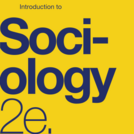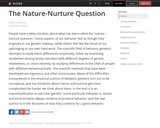
This book is written for anybody who is curious about nature and motion. Curiosity about how people, animals, things, images and space move leads to many adventures. This volume presents the best of them in the domain of everyday life.
Carefully observing everyday motion allows us to deduce six essential statements: everyday motion is continuous, conserved, relative, reversible, mirror-invariant – and lazy. Yes, nature is indeed lazy: in every motion, it minimizes change. This text explores how these six results are deduced and how they fit with all those observations that seem to contradict them. In the structure of modern physics, shown in Figure 1, the results on everyday motion form the major part of the starting point at the bottom. The present volume is the first of a six-volume overview of physics. It resulted from a threefold aim I have pursued since 1990: to present motion in a way that is simple, up to date and captivating.
In order to be simple, the text focuses on concepts, while keeping mathematics to the necessary minimum. Understanding the concepts of physics is given precedence over using formulae in calculations. The whole text is within the reach of an undergraduate.
In order to be up to date, the text is enriched by the many gems – both theoretical and empirical – that are scattered throughout the scientific literature.
In order to be captivating, the text tries to startle the reader as much as possible. Reading a book on general physics should be like going to a magic show. We watch, we are astonished, we do not believe our eyes, we think, and finally we understand the trick. When we look at nature, we often have the same experience. Indeed, every page presents at least one surprise or provocation for the reader to think about. Numerous interesting challenges are proposed.
The motto of the text, die Menschen stärken, die Sachen klären, a famous statement by Hartmut von Hentig on pedagogy, translates as: ‘To fortify people, to clarify things.’ Clarifying things – and adhering only to the truth – requires courage, as changing the habits of thought produces fear, often hidden by anger. But by overcoming our fears we grow in strength. And we experience intense and beautiful emotions. All great adventures in life allow this, and exploring motion is one of them. Enjoy it!
- Subject:
- Physical Science
- Physics
- Material Type:
- Textbook
- Provider:
- Motion Mountain
- Author:
- Christoph Schiller
- Date Added:
- 12/05/2019






